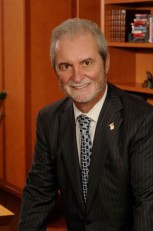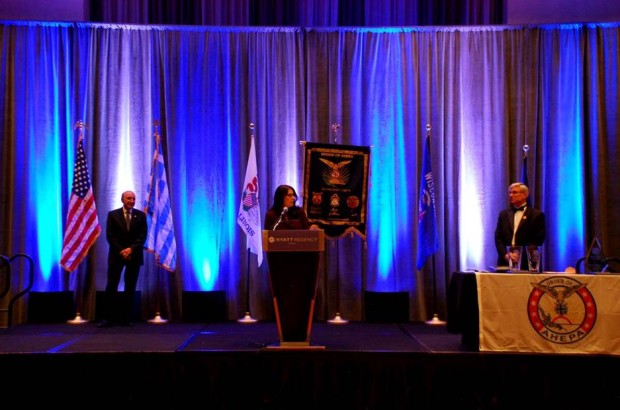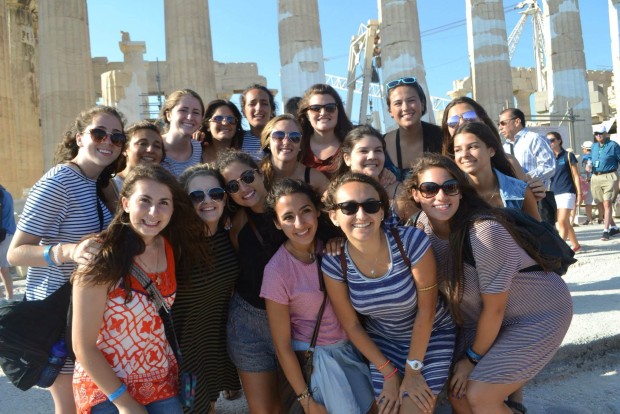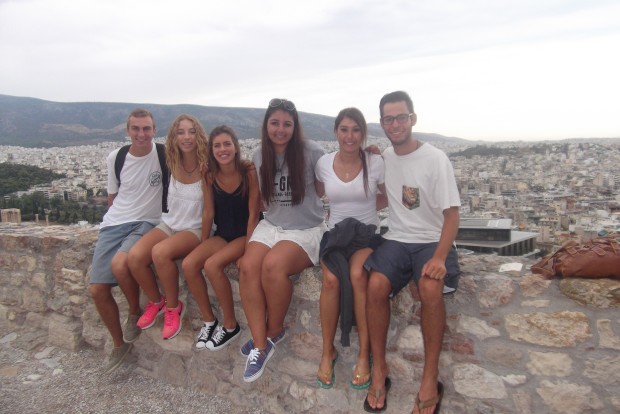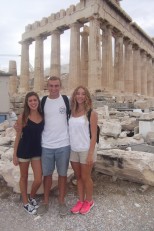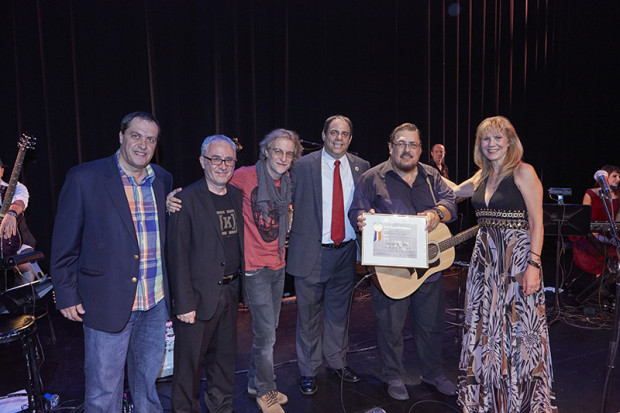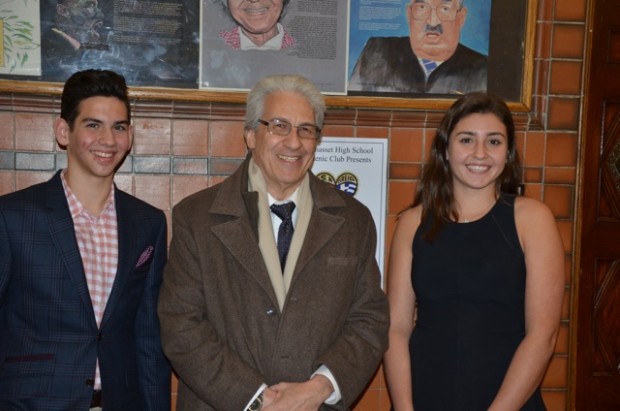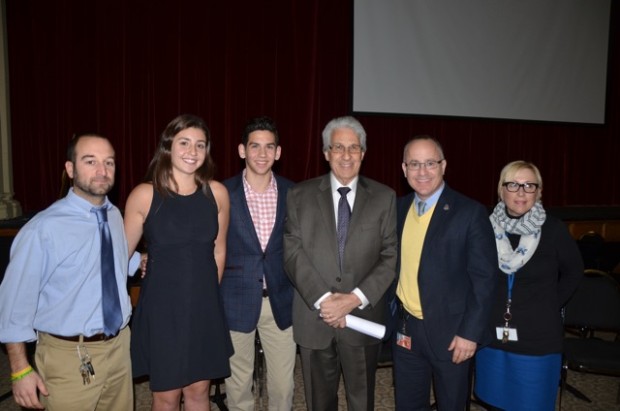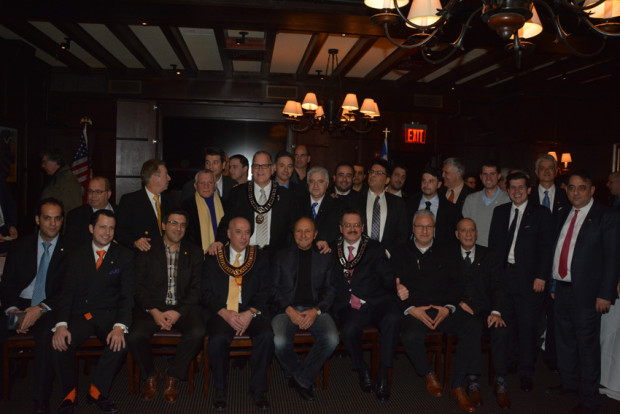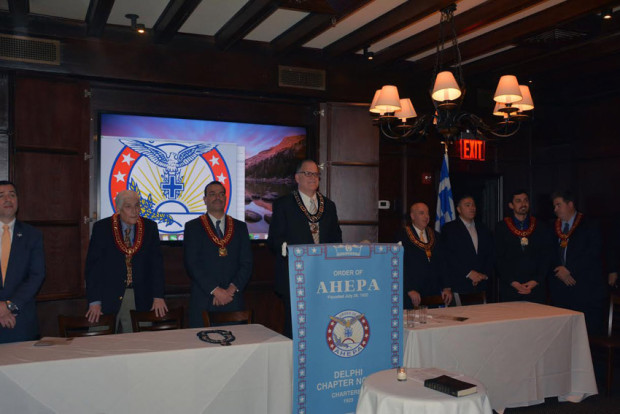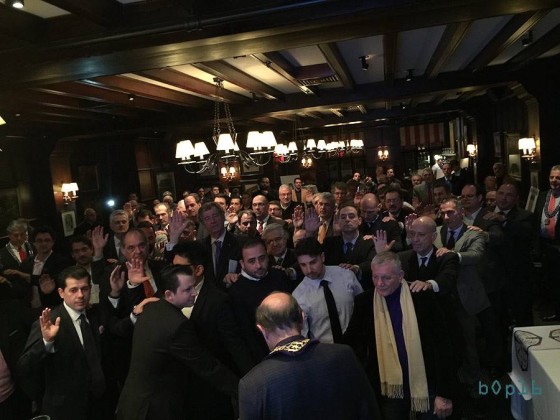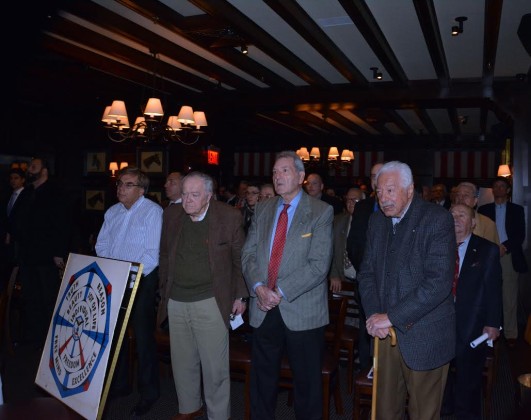by Dimitri C. Michalakis
George Tsandikos is the son of a priest who never felt the calling himself but as chairman of Leadership 100 he helps young men join the priesthood and after working with Leadership for years and becoming chairman in 2014 he has served the church faithfully in his own way. “I grew up in the Church and the Church has been a critical part of who I am,” he says. Before becoming chairman of Leadership he was vice president under three of its presidents, a past treasurer, an audit committee chairman, and a longtime archon of the Ecumenical Patriarchate. “It is all about the people and their faith and the ministries of the Church and their effectiveness,” says the 55-year-old managing director of Rockefeller & Company since 2003 and before that J.P. Morgan Private Bank. “It’s about working under the guidance of His Eminence Geron Archbishop Demetrios. His intellect is astounding. It’s about the honor of serving the Church under his spiritual leadership.” Tsandikos was born in Fitchburg, Massachusetts and grew up with sisters Kathryn and Stephanie in Worcester, the son of Reverend Solon Tsandikos and Presvytera Joanna and he graduated Brown University and Boston College Law School.
![George Tsandikos - PHOTO: DIMITRIOS PANAGOS]()
George Tsandikos – PHOTO: DIMITRIOS PANAGOS
What are the goals for Leadership this year?
Our main goals are to get the message out that Leadership 100 is a nonprofit 501(c) (3) which supports the National Ministries of the Greek Orthodox Archdiocese of America, advances Orthodoxy and Hellenism and recruits new members committed to the Orthodox Faith and Hellenic Heritage Presently we have 979 members. Our goal is to reach and hopefully surpass 1,000 members in 2016.
How do you get there from here?
By communication through our own publications, website, Facebook and YouTube and in the Greek press and other media and in reaching out to individuals through one to one personal contact and by organizing various recruitment events throughout the Metropolises.
What’s your biggest challenge?
To strive to increase our membership and our Endowment portfolio so that we may provide additional grant funding for the ministries of the Church.
How has Leadership changed in your tenure?
Living in New York, I have the additional benefit of attending numerous events together with the Executive Director and reaching out to individuals who are in a position to join. We have established new committees and I have asked every member of the Board to serve on a Standing Committee.
![George S. Tsandikos with mother, Presvytera Joanna, Archbishop Iakovos and father, Fr. Solon S. Tsandikos]()
George S. Tsandikos with mother, Presvytera Joanna, Archbishop Iakovos and father, Fr. Solon S. Tsandikos
Why did you want to be Chairman?
To be honest with you, I did not seek the position but I was honored when John Payiavlas as Chairman of the Nominating Committee approached me and asked if I wish to be nominated. My election by the Board of Trustees was one of the greatest honors in my life.
As a money man, is it all about the money?
No, quite the opposite! It is all about the people and their faith and the ministries of the Church and their effectiveness. It’s about working under the guidance of His Eminence Geron Archbishop Demetrios. His intellect is astounding. It’s about the honor of serving the Church under his spiritual leadership. Money is, of course, necessary to accomplish our goals but it is a byproduct of these efforts.
How do you transfer the money to good deeds?
We have supported the theological school, provided scholarships to seminarians, seeded and nurtured Archdiocese ministries, supported Metropolis camps, the Clergy, IOCC and humanitarian needs. In all, since the beginning we have made grants totaling over $42 million, I think of it as 42 million good deeds.
What are the most pressing needs in the church and in the Greek community?
To keep our people united in the Church, keep our youth safe during this most critical time in our Nation and in the world, and to serve the faithful and welcome the stranger.
![George S. Tsandikos and Paulette Poulos accept award of St. Nicholas Greek Orthodox National Shrine from His Eminence Archbishop Demetrios in acknowledgement of Leadership 100 support in October of 2014.]()
George S. Tsandikos and Paulette Poulos accept award of St. Nicholas Greek Orthodox National Shrine from His Eminence Archbishop Demetrios in acknowledgement of Leadership 100 support in October of 2014.
How do you get the young people involved? What is your outreach to them?
Leadership 100 established a young professionals program known today as the Leadership 100 Partners. The purpose of this was to encourage young people to join Leadership 100, participate in programs and events and to make their $100,000 commitment payments on a lower scale. Our annual conferences bring together over 100 young people who benefit from meeting prominent men and women who are successful in their professions. It also gives them an opportunity to meet other Greek American young people and, in some cases, to meet their partner in marriage.
My father was a principal of Greek parochial schools and their survival was dependent on the local church (on its many travels as the neighborhood changed). How can Leadership help the church and the schools?
The Grant Committee is presently reviewing a grant proposal which was submitted by the Archdiocese Department of Greek Education to provide funding for educational materials for Greek parochial schools. We are a national organization and are restricted from supporting local entities but we can support Greek education in general through this Department.
Are our parochial schools now permanently endangered?
With the downturn in the economy, all parochial schools have faced difficulties. We recently witnessed the Catholic Archdiocese’s decision to close several parochial schools in New York. Another factor is that many of our families are changing parishes and neighborhoods which result in a decline in enrollment. Still, there is a critical need for this type of special education. I believe and pray they will survive. Perhaps the Church should study the successful schools as a model to replicate elsewhere.
![George S. Tsandikos with United States Vice President Joseph R. Biden, recipient of Athenagoras Human Rights Award at Order of Saint Andrew, Archons of Ecumenical Patriarchate Grand Banquet in October of 2015 (Official White House Photo by Amanda Lucidon)]()
George S. Tsandikos with United States Vice President Joseph R. Biden, recipient of Athenagoras Human Rights Award at Order of Saint Andrew, Archons of Ecumenical Patriarchate Grand Banquet in October of 2015 (Official White House Photo by Amanda Lucidon)
Are our churches becoming imperiled and our rate of attendance becoming an issue?
Our lives today are so very fast. Studies show church attendance is declining across all faiths. Still, our Holy Trinity Archdiocesan Cathedral is packed on Sundays and with young families as are many other churches in urban centers throughout the country The Church will survive and thrive as it stands for a faith and values that transforms lives for the better and combats pessimism and despair.
How do we attract priests into the church?
The Priesthood is a special calling from God and all you have to do is walk on the grounds of our Theological School in Brookline to see the commitment of these young men who have been chosen to serve the Church. Vocations, in fact, are on the increase.
What is your sales pitch when you are trying to recruit new members into Leadership?
Rather than using the word, “sales pitch”, I would say our message is to make people aware of how our support for the scholarship program offered to seminarians has helped educate and train these young men for the Priesthood. Many of them have approached us to thank us and to assure us that if it were not for Leadership 100, they would not be able to study at Holy Cross. Likewise, many young people have thanked us for our annual support of Church summer camps. Fundamentally, all the National Ministries are dependent on Leadership 100 in order to grow and innovate their programs.
![George S. Tsandikos Addresses 73rd Commencement at Hellenic College/Holy Cross Greek Orthodox School of Theology in May of 2015 PHOTO:© DIMITRIOS PANAGOS-GANP/ΔΗΜΗΤΡΗΣ ΠΑΝΑΓΟΣ]()
George S. Tsandikos Addresses 73rd Commencement at Hellenic College/Holy Cross Greek Orthodox School of Theology in May of 2015
PHOTO:© DIMITRIOS PANAGOS-GANP/ΔΗΜΗΤΡΗΣ ΠΑΝΑΓΟΣ
How do you get them to participate besides offering their money?
By serving on our Board and committees and by attending our annual conferences and participating in regional and Metropolis events. Most build friendships through these activities and events which, in turn, creates a cohesive organization that perpetuates itself through future generations. We are one big family of faith.
How generous are Greeks?
Greeks are known to be very generous, hospitable and full of filotimo and one can witness that firsthand whenever Leadership 100 members gather, whether in small groups or at big events and our conferences.
How many miles do you travel a year on behalf of Leadership?
I do not have a precise number but I have been across the country more than half a dozen times since my election and to local events several times each month. I think the number would be surprising and significant. Our annual conferences alone require two or so site visits and the actual events and there is always something going on at the Schole. Honestly, I really do not keep count. Every step is so fulfilling.
How do you balance that with your day job?
Fortunately, I am in an executive position and my company supports charitable work and community activities. I enjoy my day job and my responsibilities as Chairman of Leadership 100. Some days can be long but they are always rewarding.
How would you describe your relationship with (Leadership Executive Director) Paulette Poulos?
Paulette and I have a long standing relationship which dates back to our beloved Archbishop Iakovos of blessed memory. We are friends who share a mutual respect and admiration for each other. Paulette is tireless, faithful and loyal. She is a very special person.
Who does what?
Paulette handles the administrative work of the Office as well as the day to day responsibilities. Paulette and I travel together to conference sites and events and she keeps me informed of all pertinent matters. We participate regularly on conference calls with our Committees and with individuals.
Will the team ever be broken?
I can honestly say I hope the team will never be broken. I will be completing two years in February and the Nominating Committee has nominated me for another term.
What was it like growing up in Fitchburg and Worcester?
I was born in Fitchburg and moved to Worcester when I was very young. My father was assigned to serve St. Spyridon Church there. It was idyllic in many ways. Worcester in those days was booming. The Greek community was extremely active and life very much centered around the Church.
Parents born here?
Both my parents were born here – my mom in Worcester, MA and my dad in Lowell, MA. Shortly after they married, they moved to Athens for a few years while my father studied at the University of Athens. Their love for Greece was contagious. Even though I am a third generation Greek American, I, too love, Greece.
Their families are from what part of Greece?
Mainland. My mother’s family was from the Peleponissos region. My father’s father was born in Kalambaka; his mom in Evia.
Which parish did you grow up in?
My dad served the Worcester parish from 1963 until 1974. I left for college in 1978 so I consider St. Spyridon in Worcester to be my childhood parish.
What was it like being the son of a priest?
Wonderful yet at times challenging. I had to be good. On the other hand I was exposed early on to all of life’s many challenges and sacrifices. But I grew up in the Church and the Church has been a critical part of who I am since then.
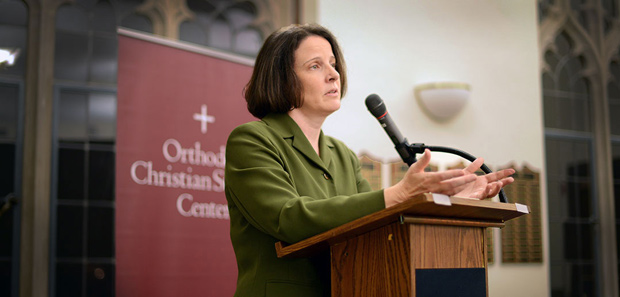
 Dostoevsky continued to harbor this mistrust when, decades later, as a member of the Society for Lovers of Spiritual Enlightenment (OLDP), he participated in discussions regarding the possibility of reuniting the long-divided Eastern Orthodox Catholic Church and the Western Catholic Church.
Dostoevsky continued to harbor this mistrust when, decades later, as a member of the Society for Lovers of Spiritual Enlightenment (OLDP), he participated in discussions regarding the possibility of reuniting the long-divided Eastern Orthodox Catholic Church and the Western Catholic Church.
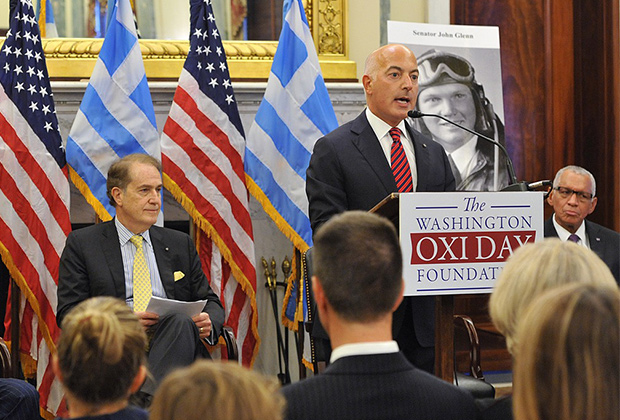
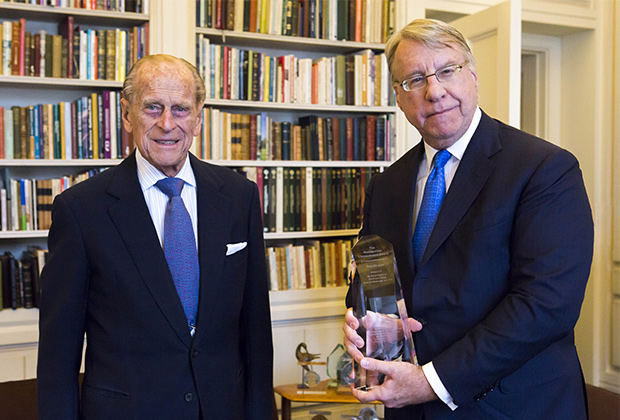
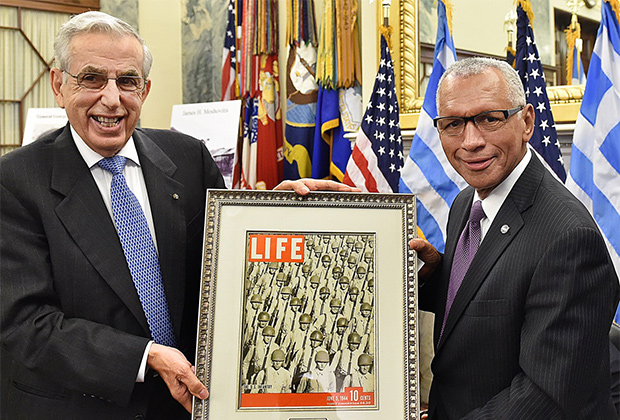
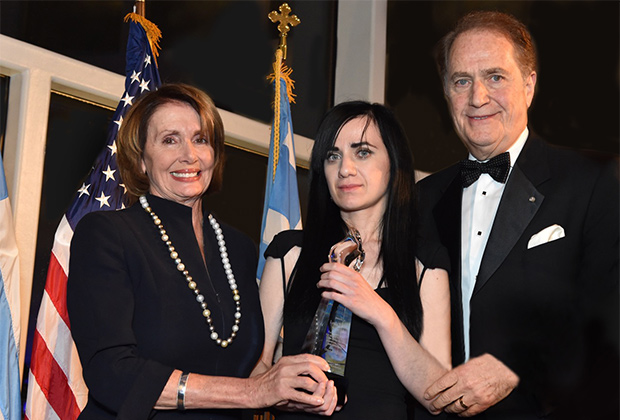
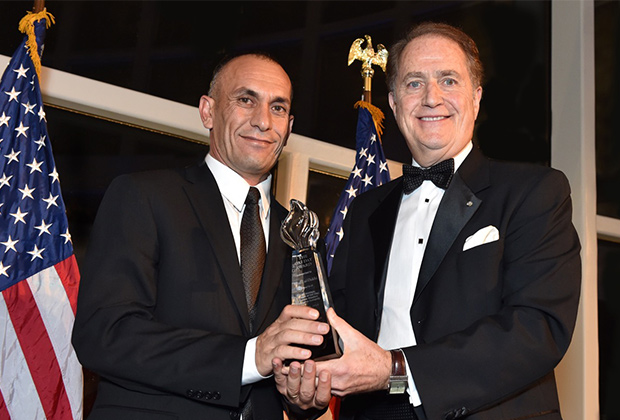
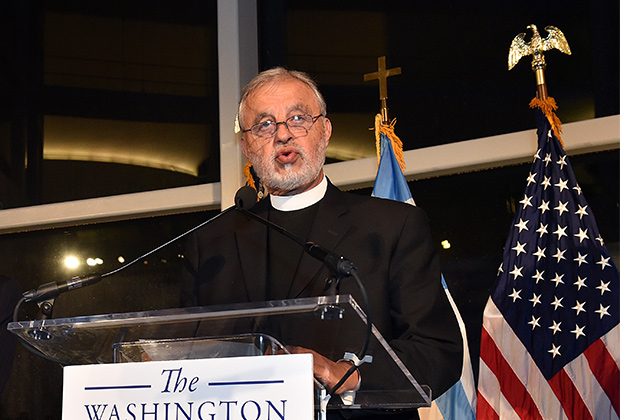
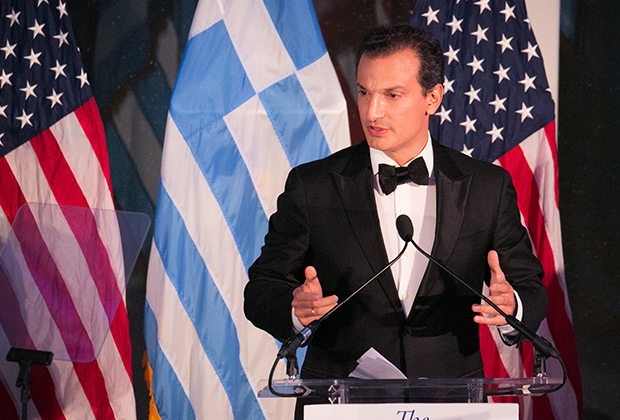
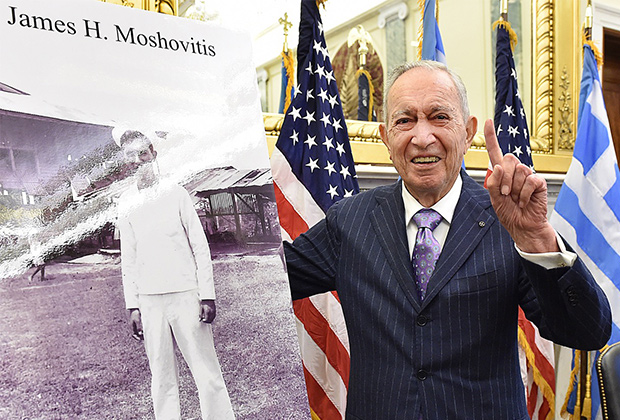
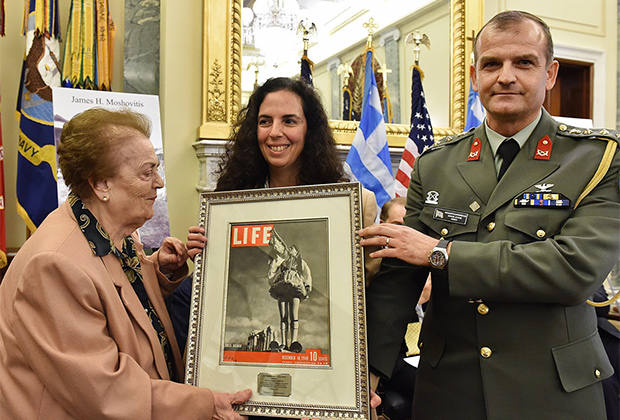
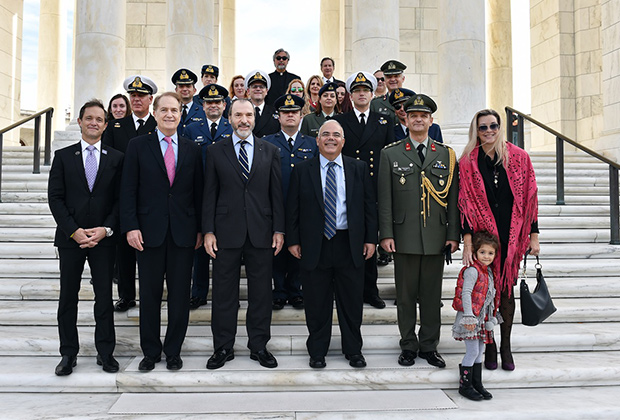
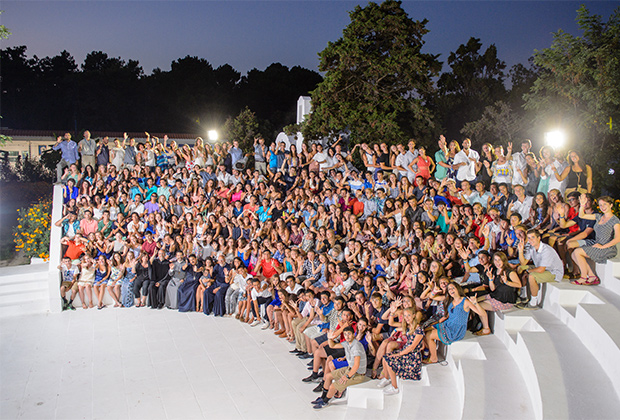
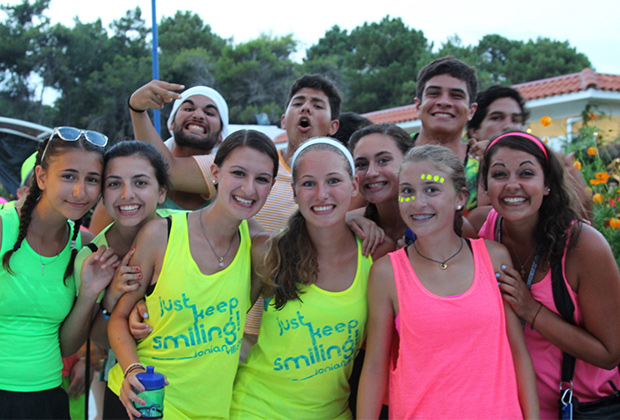
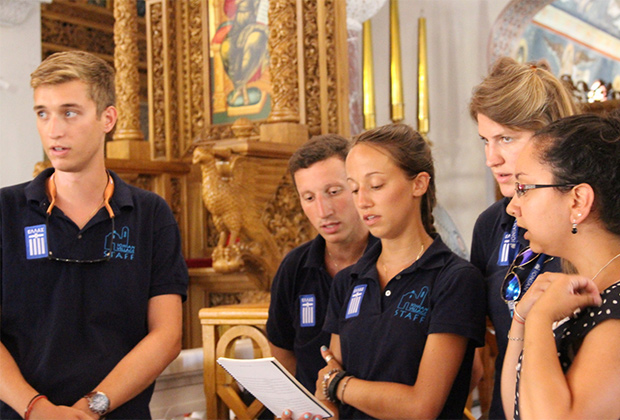
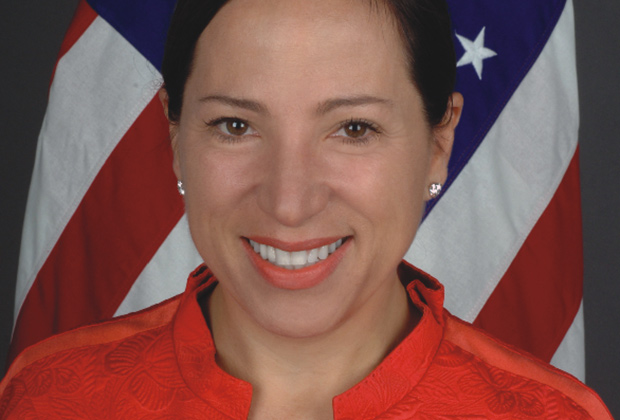
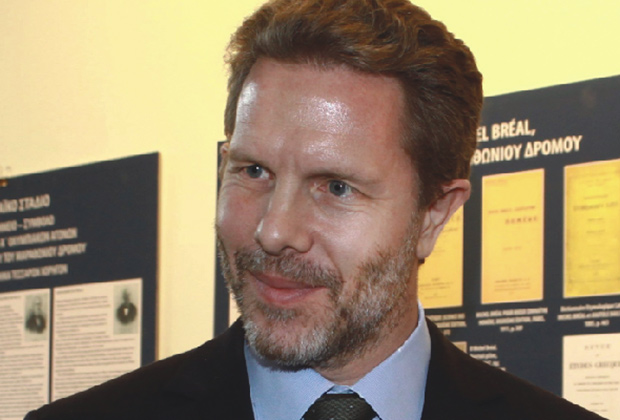



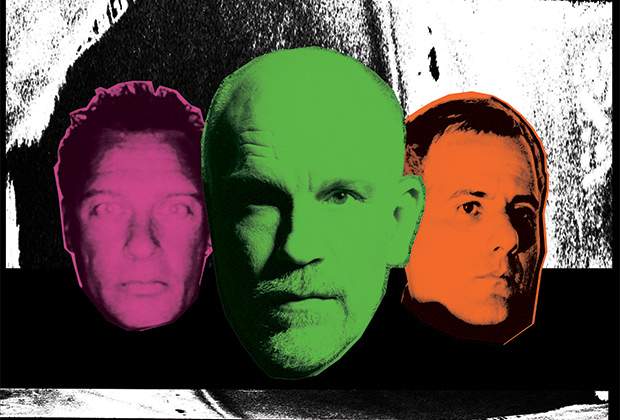
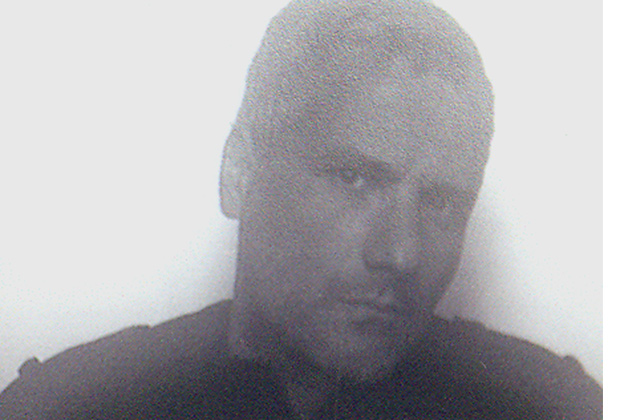
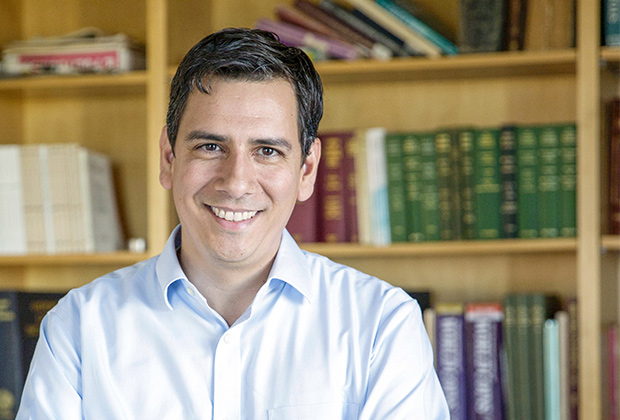



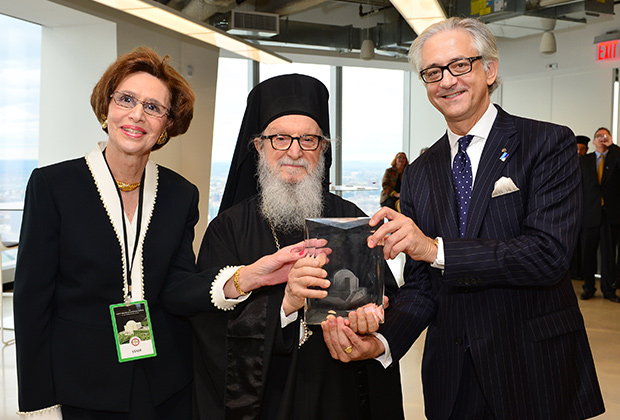
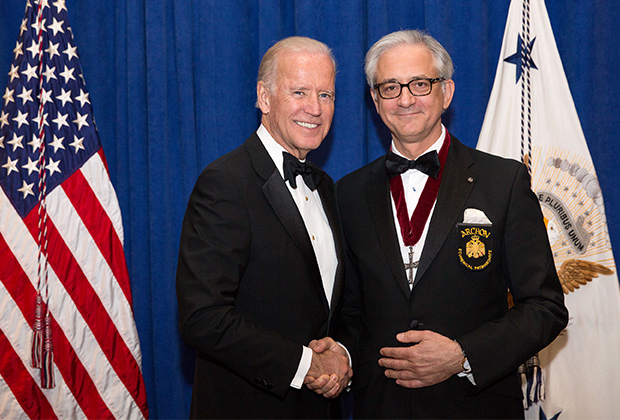
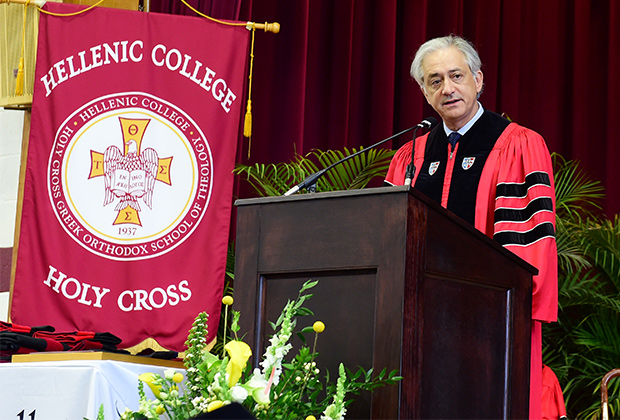

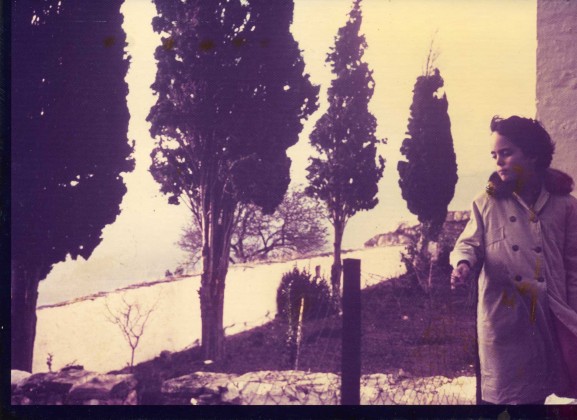
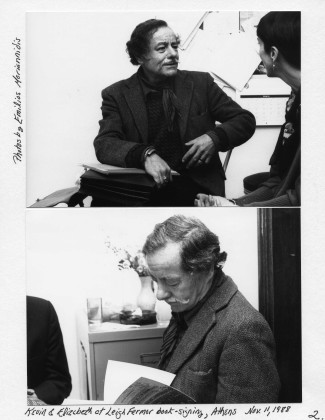
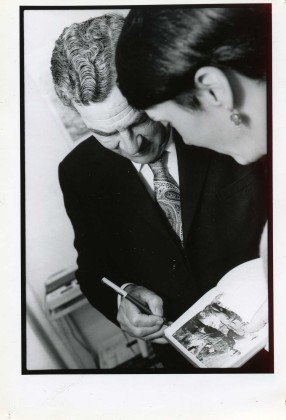

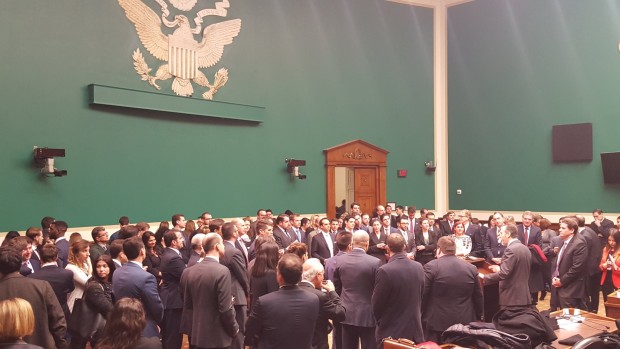

 As for the two parents, they were sailing in a sea of happiness hours before the arrival of the stork, though they seemed to be surprised by the estimates of the midwife that their son is at a stage equivalent to one month aged newborn. Indeed, Stefanos-Jason weighed 4kg and looked ready for business upon arrival!
As for the two parents, they were sailing in a sea of happiness hours before the arrival of the stork, though they seemed to be surprised by the estimates of the midwife that their son is at a stage equivalent to one month aged newborn. Indeed, Stefanos-Jason weighed 4kg and looked ready for business upon arrival!